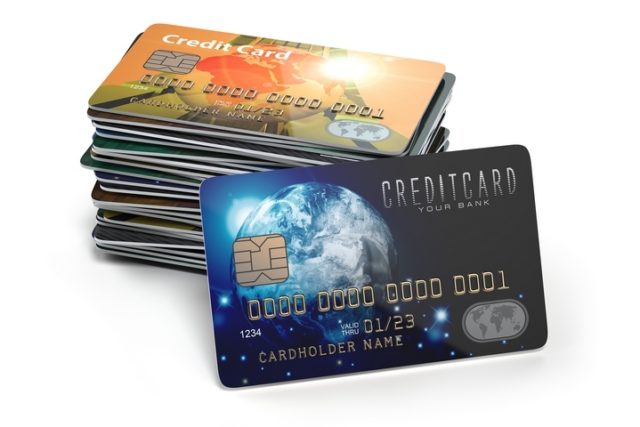Whether you plan on using it for everyday transactions or just in emergencies. As you begin to look at your options you feel inundated with all of the cards available with different terms and benefits. Below are 5 factors to consider when choosing a credit card. Being conscious of them will ensure you get the one that is best for you.
1. Interest rate

The interest rate on a credit care should be a major determinant regarding which one you sign up with. In Canada these can range anywhere from 9 to 29 percent.
If you pay off your credit card balance in full each month, then the interest rate is not much to worry about. However, if you are like most people, you carry a balance. This means that interest will accrue. Interest rates will greatly affect your monthly minimum payments and a high rate may mean that more of it will be going towards the interest as opposed to the principal balance. Therefore, it is recommended that you compare credit cards and choose one with an interest rate as low as possible.
2. Limit

The credit limit you have on your credit card can vary greatly. Therefore, you need to find one that meets your needs. One that offers a low limit will prevent overspending but may not be as useful in cases of emergencies where you need quick access to money. A limit too high will encourage spending that can result in debt issues.
Before settling on a credit card, compare the different limits of them and see which one works for you. A lower limit is recommended but not too low where you cannot get what you need if you need to use the card. It is also beneficial to contact the company before signing up and ask about credit increases in case you ever need on.
3. Rewards

While credit cards that have low interest rates are beneficial, many people opt to get ones that offer rewards instead. This means whenever you use your card you earn points that can go towards retail purchases, travel, or getting cashback.
Before signing up for a credit card you need to decide whether the low interest rate or rewards feature is most helpful to you because usually they do not offer both. If you want a rewards card, determine which one will be more useful to you. For example, if you like to travel, get the card that offers rewards you can put towards flights and hotels.
4. Spending habits

When it comes to credit cards, your spending habits can get you into a lot of trouble. Therefore, you need to be careful of what card you choose and make sure it has terms that will allow you to sustain a good degree of financial stability.
As mentioned, if you usually do not carry a balance from month to month, a card with a low interest rate is not a must. Instead you can opt for a rewards card with no annual fee. If you do carry a balance, it is recommended that you get the one with the lowest interest rate possible.
5. Customer service

Throughout the time you have your credit card, chances are you will have to contact the company’s customer service department every now and then. These occasions can include when you need a credit limit, have questions about charges, or notice fraudulent activity on your account.
Before applying for a credit card, check into the customer service department of the company. This can be achieved by asking family members, friends, and colleagues about the credit card they have and if they are happy with the customer service. You can also read online reviews to determine whether people are happy with the credit card company you are considering.






